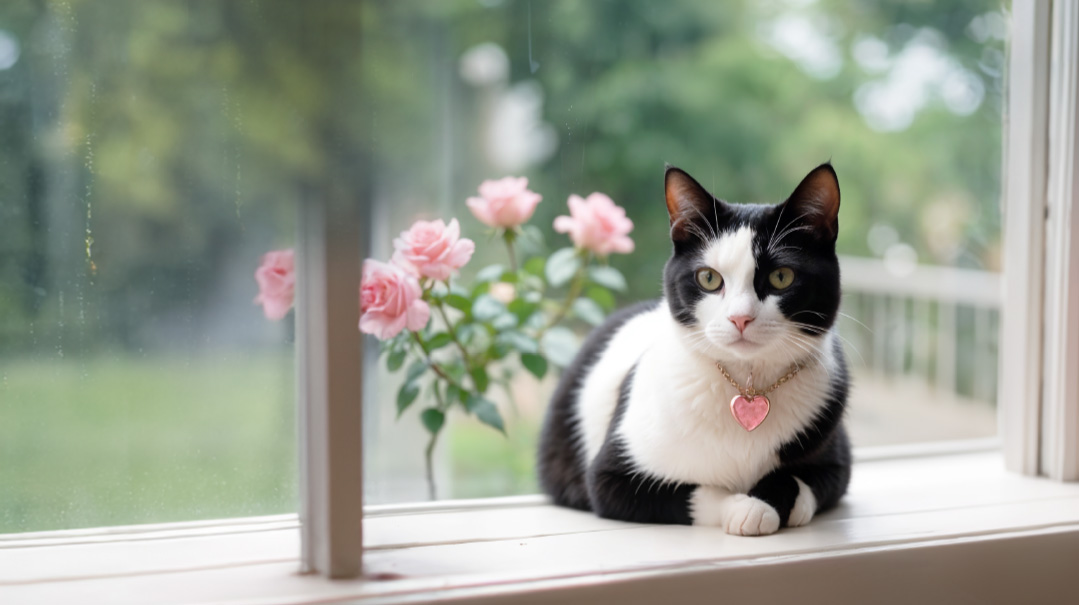A Different Mother

They were my siblings — yet we’d grown up in different families

ON
Mondays, when I’d arrive home from school, the smell of cabbage overtook me the moment I opened the door.
Quietly, I would hang up my coat and briefcase, then go to the kitchen and wash my hands with soap.
Quietly, I would sit down at the table and my mother would serve me a steaming bowl of cabbage soup. Quietly, I would eat.
We did everything quietly. I mean, of course we spoke. My mother would ask me how my day was, what was for homework, what else was doing. Often she’d also share something she’d done that day, a store she’d shopped at, a friend she’d met. We even usually had some music playing in the background. Soft music. Calm music. Quiet music.
It was always quiet in our house, simply because there was nobody around to make any noise.
Adults don’t make noise.
And one little girl, with an even temperament and everything in her life catered to her in a soft, gentle way, doesn’t make noise either.
When I was done eating, I would do my homework, and then I got to choose. Stay home and play — or go to the Kreindlers.
Staying home meant I would slip into our beautifully organized toy closet, burrow into my pink bean bag, and keep myself occupied with any of our many books, toys, dolls, or games. I liked spending time in the toy closet. It was cozy and comfortable, my private little niche where my dolls were my playmates and I could allow my imagination to take me to all sorts of interesting places. I could sit there for hours — calmly, contently. Quietly.
At the Kreindlers, it was never quiet. They had nine children. The oldest was a girl, then they had two boys, then Shiffy, who was my age, followed by a boy, and then another four girls.
Most of the Kreindlers’ toys, books, and games were broken, torn, or missing pieces. Their playroom was always a huge mess. Their house was messier in one day than a year’s worth of messes in my house. Whenever I went to the Kreindlers, I returned home with a headache. Their house was fun, but also a little dizzying.
AT home, my mother would prepare tea for herself, my father, and me, and she would bring some treat to the table to go along with it. Sometimes it was a good piece of cake, sometimes it was chocolate or mints, and sometimes it was dried fruit. No matter what it was, I was somehow always in the mood for just that. We would sit together under the low-hanging dinette light fixture, nibbling and chatting softly, tungsten lighting matching the warmth of our teacups .
None of my friends drank tea. I didn’t tell them that I did, and on evenings when I had a friend over, I would make sure we stayed locked in my room while my parents had tea. I knew it was a little different (somewhat quaint and British), so I savored the routine when we were alone, feeling secure and loved at our cozy little table — and kept quiet about it otherwise.
There were ways in which my life was different from my friends’ lives. The main difference was that I was always part of the adults, because there was nobody else to be part of. We went on family trips often, just my parents and I. Sometimes my parents would suggest I bring a friend or cousin along for company, which was fun, but the truth was that I preferred traveling alone with my parents. It didn’t feel lonely. It just felt… right.
Sometimes I wondered about our family. Did my parents even wish to have more children? They never uttered a word about it, and sometimes I wondered if I even wanted a sibling.
Then, when I was 15 years old, it happened. My mother gave birth to a baby girl. I had a sister.
The night before Kayla entered our lives was the last time we had tea.
We still drank tea, sometimes. But we never had tea again. It was like our sacred evening routine had died, without as much as a modest funeral.
At first I told myself it was a temporary thing. Life had suddenly become hectic; my parents were too busy and too tired for leisurely pastimes.
I liked Kayla. She was cute and cuddly and it was fun to fuss over her and shop for baby clothes and accessories. This was the sister I’d never believed I’d have.
Kayla stole our hearts.
She also stole our sanity .
At first the doctor said it was colic. When she hadn’t yet phased out of her nonstop screaming by three months old, he upgraded the diagnosis to reflux.
I liked Kayla. But I did not like reflux. Reflux shattered the peace in our home. It dirtied my clothing. It drew black circles under my mother’s eyes. Sometimes it kept her in bed when I headed off to school, without her quick hug and cheerful, “Have a great day!” ringing in my ears.
After several months of this, with cabbage soup off our menu — it wasn’t good for Kayla, and also, it’s hard to put up a soup with a screaming baby in your arms all day — I started liking Kayla a little less.
I still kept a keychain picture of her on my briefcase, but my heart no longer melted every time I saw her, and at one point I realized I’d developed an actual dislike for tea.
When Kayla was 19 months old, the reflux had phased out — and her Terrible Twos had phased in. Early, way early. Just in time for the birth of our new sibling, Meir.
BY the time I entered the shidduch parshah, there was yet another baby on the way. Shiri joined our family two weeks after I got engaged.
The mother who accompanied me to the chuppah wasn’t the same mother who had raised me. As a child, whenever I’d envisioned my engagement and wedding, I’d envisioned a fairytale experience. First the dating: coming home and rehashing every detail of my dates with her for hours. Then the vort: my mother would bake up a storm and obsess over the color of every napkin and flower. The weeks leading up to the big day would be a whirlwind of gown appointments and exciting shopping trips. My mother and I would spend endless days at the mall, enjoying lunch together and then treating ourselves to manicures and massages. We would spend long, tiring but exhilarating hours at the seamstress, making sure every dress fit just so, and we would devote hours and hours to researching sheitels and sheitelmachers, for me as well as for her.
In my wildest dream I’d never envisioned my mother trudging through her ninth month of pregnancy while I dated my husband-to-be. I’d never imagined a nursing newborn on the scene as we frantically raced to get the wedding shopping done. I certainly never anticipated a two-year-old brother breaking the shalach manos I’d worked so hard to put together, just hours before it was supposed to be delivered to my future mother-in-law.
My mother didn’t get a new sheitel for my wedding. She simply didn’t have the time or energy to focus on it. “The one I have is in great condition. I’ll just get it set nicely,” she told me tiredly.
I did a lot of the shopping on my own. With three children under the age of four, my mother simply couldn’t spend all that time at the mall with me. “You’re old enough to get married. You’re old enough to choose towels,” she tried bantering. But it was a lame joke and although I didn’t want to complain, I felt a little cheated. This was my time. Why were three babies stealing my mother from me?
I’m not saying the wedding wasn’t nice. It was beautiful and there really wasn’t anything missing. But that, “Wow!-only-child-getting-married!” halo certainly wasn’t there. And when Nachi and I came to my parents’ home for a Shabbos seudah after our wedding, the food wasn’t over the top and the house wasn’t immaculate. Three babies made noise and demanded a lot of my mother’s attention. Tea had become a distant memory.
Still, I didn’t have any hard feelings. My siblings were a blessing. They were keeping my mother young. Really, they were my family.
They were my family — except that they weren’t.
Kayla, Meir, and Shiri grew up, slowly. They grew up loudly. But mainly, they grew up together. They were a trio, two sisters and a brother who shared lollipops and beds, adventures and disappointments, code languages and memories.
I was their older sister, but for the role I played in their lives, I was more of an aunt. I had my own brood, and between raising them and holding down a job, my hands were full. Once, when I went over with my kids on a Sunday, my siblings were strangely quiet. When I asked them what was wrong, they gesticulated in response, until Kayla scribbled on a paper, New neighbor has a deaf kid. We’re learning sign language.
They were having a grand time, but I felt a pinch. They were a family, and I wasn’t part of it. I’d never been, and I never would be. I’d lost my parents to these kids, and now I had siblings, but essentially, I’d remained an only child. A slightly abandoned only child.
When my siblings were 13, 12, and 10 years old, my parents took them on a grand summer trip to Banff. I had a six-week-old baby at that time, and I was struggling to keep all the balls in the air. I really could have used my mother’s help, but she wasn’t around. She’d flown off with the three kids to give them a great time.
All the family trips we’d taken when I was a kid suddenly soured in my memory. I hated myself for being that way, but I couldn’t control my emotions. I’d never felt so alone and unwanted in my life. I remember staring at my tiny baby and telling her, “Nobody cares about me. Nobody remembers me.”
When they returned, I tried to keep away. I wasn’t interested in hearing all about their amazing adventures. I wasn’t interested in giggling over their pictures.
But I couldn’t keep away for long. A week after their trip, when my baby was all of eight weeks old, my mother broke the news to me.
She’d gotten a diagnosis. And it was terminal.
I experienced my mother’s petirah like someone watching a pixelated video. I absorbed every detail, but it wasn’t really real. I was able to record a trove of details, as though my memory had opened a special chamber to collect everything, every last relevant and random part of it, so I could later go back to that fateful night and replay the events in my mind, every day for the rest of my life.
Replay it — and undo it. In the crazy dreams that tormented me over the months following her passing, undoing played a major role. I would pause the video, scream hysterically, then frantically start banging on the machines, turning dials, correcting numbers, holding them up — There there, don’t drop, I got you, you’re alive, you’re alive! See? You’re breathing, there’s a pulse, I did it, I stabilized the numbers, you are—
Gone.
She was so completely gone. So quickly, so suddenly, it was dizzying. I couldn’t come to grips. I never knew tear ducts could produce so many gallons and gallons and gallons of tears.
But before I had a chance to start processing the grief, the new reality hit me. My siblings — Kayla, Meir, and Shiri — were now orphans.
The fact that I’d also been orphaned was lost on the many shivah callers who came by. I was an adult, I was a mother six times over. My siblings were kids. “She left behind three children at home,” murmured the many visitors who came to our home.
But as soon as we got up from shivah, I had to acknowledge that they were right.
My siblings were children. They still had to be raised and nurtured. Our mother was no longer going to raise and nurture them. The responsibility fell on the one obvious person:
Me.
Iwasn’t able to be there when Kayla and Shiri came home from school — I had to be home with my own kids — but I was there an hour later, with split pea soup, schnitzel, mashed potatoes, green beans, and cut-up fruit.
My baby hollered while they ate, and I welcomed the distraction to the moody atmosphere. Nobody commented that the food was good. They just ate it silently, glumly. Almost dutifully. I got them. It felt wrong, almost irreverent, to admit to enjoying a hearty bowl of soup when our mother was gone.
I did it again the next day, Wednesday. I bundled up my baby and showed up at my parents’ house with onion soup, baked ziti, fish, and salad. I’d planned on making some cheese latkes for dessert, but the day had disappeared on me and there was just no time left. I bought a container of ice cream instead.
I was going to leave before they were up to dessert, but I lingered, waiting for them to finish so I could clean up after them. Kids that age had homework, they shouldn’t be expected to clean up the kitchen after supper. My father wouldn’t know what to do with a dishwashing sponge if he met one. Also, I knew my mother’s cleaning standards. As crazy as it was, it was her kitchen and I had to do it her way, for her, as though she would see or care.
I’d just finished drying the dishes and was starting to sweep the floor when Kayla returned to the kitchen. I watched her open the fridge and take out the leftovers from supper — a full container of soup, the ziti I’d transferred to a smaller pan, and the one remaining slice of fish.
Okay, refills. “Should I warm you up some of that?” I asked.
Kayla looked at me. “No, I’m just taking this over to Mrs. Hartstein.”
“Mrs. Hartstein?”
Shiri walked in then. “Mrs. Hartstein, Chava Goldring’s grandmother. We always brought her supper, since the Goldrings moved to Monsey.”
The Goldrings moved to Monsey? My mother sent her mother supper? Why didn’t I know any of this?
Tears filled my eyes. Ugh, not again. Did everything I saw or heard have to trigger me like this?
I blinked them back quickly. The last thing my siblings needed was to see me cry again. Or maybe they did need to see me cry, so they’d know it was okay to be like this?
Silently, I swept up the floor. It was getting late, I had to hurry home to my family.
Kayla left, and Shiri came in and sat down at the table with a Sudoku book. I debated if I should ask her if she had any homework. When I’d been in school my mother had always insisted that I do homework before going to play. Had she been on top of my siblings as well? And if yes, was I meant to do that to her? Did she need me to?
My baby started whimpering. He was getting hungry, but I didn’t have time to sit down to feed him. I’d have to bundle him up and fly home.
I bumped into Meir at the door.
“Uh, Raizy?”
He was squirming.
“Yes?”
“My glasses broke. I’m not sure what to do….”
I looked at his face. He looked so tiny suddenly, so lost. He tried to lean against the wall casually and keep his gaze steady, but it didn’t work. His eyes darted around in confusion, green orbs at sea.
A foul taste filled my mouth. The emotional chaos of the last two and a half weeks crowded in my chest and I felt like I was going to choke.
“I’ll take you for a new pair tomorrow,” I managed to mumble.
I fled the house before the tears came.
I met Meir at the optician the next afternoon.
It had been a crazy day. My Chani’s class had made a Chumash play in the morning, and I’d gotten a psak that I could attend, sitting alone and wearing earplugs to drown out the music. I sobbed straight through the performance, my mother’s absence at my side a glaring hole that swallowed me in an ocean of grief.
When it was over, I ran to the office to put in a few hours of work, and after that I went to the grocery to do my weekly shopping. On my way home I’d bumped into my mother’s old neighbor. Turns out she hadn’t heard anything and she let out all her shock and pain on me.
By the time I arrived home, moments before Avrumi’s bus, I hadn’t started on the Shabbos cooking, the hampers were overflowing, and I was completely drained.
At least I didn’t have to take over supper to my siblings; Bubby Steiner had offered to send food that day.
Meir didn’t seem to notice my exhaustion. He tried on pair after pair after pair of glasses, nixing each one with barely a glance in the mirror. I couldn’t understand why he wouldn’t simply get the same pair as the one he’d broken; he’d chosen it less than two months before.
After 45 minutes of this, with Meir nowhere closer to making up his mind, the saleslady got a little impatient. “Why don’t you just trust your mother? Mothers always know best, right?”
Meir turned red like a tomato and my own mind raced. To say or not to say?
I decided to say. “I’m not his mother, I’m his sister. We’re in the shloshim for our mother now.”
The woman’s face colored. “I’m sorry. I’m so, so sorry.”
My head spun. Okay, maybe I shouldn’t have said anything .
When we left — after finalizing on the decision of ordering a replacement of the same pair — Meir was super quiet.
It was only when he opened the door to leave my car that he turned to me. “I miss Mommy,” he whispered.
Then he ran into the house.
Ididn’t visit my siblings over Shabbos. My father was with them; they could manage on their own.
But on Motzaei Shabbos, Kayla called me. “Uh, Raizy, do you want to come over?”
“Now?” I stuttered. “I want to put my little ones to sleep. I hate the late nights, it kills our Sundays.”
“Not the kids,” she said. “Just you.”
Nachi pushed me to go. “They need you,” he said. “You don’t realize what an important role you’re playing in their lives now.”
I didn’t want to go. I didn’t want to face more of the morbidity. I was so heartsick, and being in that house made a mess of my nerves.
And I was right.
When I arrived, the house looked neat and clean, and my father, Kayla, Meir, and Shiri were sitting at the dining room table playing a game.
“What are you playing?” I asked.
“Splendor,” Shiri answered. “Do you know the game?”
I shook my head.
“It’s such a good game. Mommy loved it. We used to play almost every Motzaei Shabbos.”
A familiar rage barreled through my blood. We used to play it. We sent Mrs. Hartstein supper. We had our homework routine.
I wasn’t part of that we. It was Mommy and the kids, and I was just a by-the-way acquaintance in their lives. An acquaintance who had now conveniently stepped in to keep things running smoothly in their lives.
Shiri pulled up a chair for me, and Kayla started explaining the rules of the game.
“I don’t want to play,” I said.
My words came out sharp, but I didn’t care. It wasn’t fair, it had never been fair. They took each other for granted; they took me for granted. It never occurred to them that Mommy had been my mother, too. It never occurred to them that I’d essentially lost my mother twice. To the Malach Hamaves this time, but years back, I’d lost her to them. To the kids.
We’d all lost a mother.
But it was different mothers we’d lost.
My siblings were awkwardly quiet. I had to get out of the dining room. “I’m going to get a drink,” I muttered.
In the kitchen, I filled a cup with water and traced the lines on the cup. A small sniff brought the distant aroma of cabbage soup to my senses, and it was suddenly all so overwhelming. I was a little kid again, sitting quietly at the table, savoring my mother’s delicious food and allowing my brain to clear after a long school day. My mother’s presence hovered in the room, her soft voice and soft footfalls, her sweet hum and her spotless counters.
My eyes landed on the fridge, on the recent pictures of the Banff trip. My parents’ and siblings’ faces beamed at me, and for the millionth time since my mother had passed away, tears filled my eyes.
Only this time, it wasn’t her passing I was mourning. I mourned my family, the family I’d never felt part of.
“It’s hard. It’s so, so hard.”
I jumped at my father’s voice.
“Y-yes,” I stammered.
I glanced at him. His beard seemed whiter than I remembered it being. A light had dimmed in his eyes. His grief was so intense, I worried for his health.
“It’s hard, and you’re so strong,” he continued. “I can’t thank you enough for everything you do for the kids.”
I waited for him to say more, but he didn’t. This had already been more. My father had never been too expressive.
My siblings’ voices filtered in from the dining room. It didn’t sound like they were playing. They were probably talking about me. Their big sister. A sister who was a big part of their lives but a separate entity, somehow.
We’d all lost so much. There would always be a void in our lives, no matter how many times people promised us that time heals.
We didn’t even want time to heal.
Looking closely at the picture on the fridge, it dawned on me that my siblings weren’t babies anymore. They were growing up, Kayla was already 13.
Do you want to come over? Her voice replayed in my ears. Just you.
I was their sister, and they didn’t only want me for the suppers I cooked or for the errands I ran. Meir’s whisper gave me a little chill. I miss Mommy.
They wanted me for me.
My father left the kitchen, but I didn’t follow. I went from cabinet to cabinet, taking in the gadgets, some familiar and some unfamiliar, the dishes, the dish towels.
On the top shelf of the fleishig cabinet, my mother’s tea set caught my eye. My lips twisted in a bitter smile.
I closed the cabinet door, but then I opened it again and climbed onto the counter. Carefully, I took out the teapot, the tray, and five little cups.
I set the collection on the counter and put the water on to boil.
We didn’t have a mother anymore.
But we could have tea.
(Originally featured in Family First, Issue 820)
Oops! We could not locate your form.







